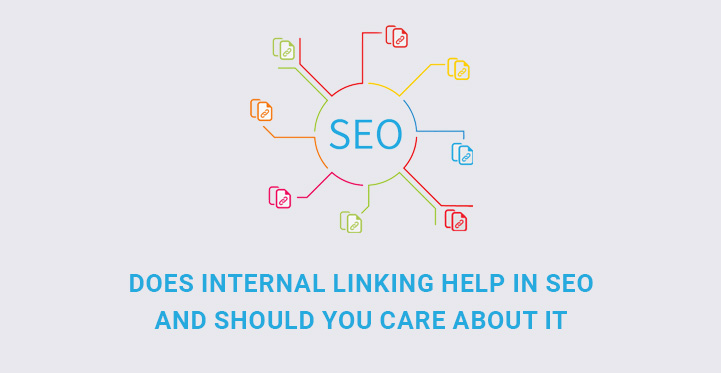Whether the fact that internal linking helps in SEO is true or a myth, interests tons of webmasters and website owners across the globe. In order to distinguish between true and false, let’s unfold what actually internal linking is so that we can help you to brush up the basic technics of it to apply.
Table of Contents
What is internal linking?
Internal links are common hyperlinks which refer to target pages located on the same domain to which the source page is related to.
In plain English, an internal link is a link that refers to another page on the same site.
All in all, internal linking is the process of linking one page of your website or blog to a different page on the same website or blog.
Why should you care about internal linking?
It’s a common principle widely used almost in any website, from small to large, from personal to business. Although the process of adding internal links on your website is not a complicated process, the practices and frequency of their usage get relatively complex.
As for the purposes of internal links, there are many. Here are some of the top ones:
- They help users navigate through the site
- They allow you to create a hierarchy in the distribution of information on your site and the overall structure of it
- They help to spread the link mass across your site and distribute the page authority
Does internal linking help in SEO?
Internal linking is user friendly. By inserting internal links and directing users to other relevant pages can help them spend less time on searching whatever they may be interested in. Use proper anchor text and send your web users wherever needed.
Now, let’s see what internal linking has to do with SEO.
Internal linking helps in SEO by increasing page views
It has a positive impact on the conversion rate of your website. People following through the given internal links considerably increase your site’s page views.
Internal linking helps you reduce bounce rate
It is one of the useful tactics to reduce bounce rate of your site and persuade people spend more time on your virtual domain.
Internal linking helps in SEO by increasing PageRank
Google PageRank measures the importance of web pages and the algorithm behind this method is based on how many quality backlinks are pointing to the specific web page.
Hence, if you are linking other pages to the one with a higher PageRank, those internally linked pages will get better ranks as well.
Internal linking results in better crawling and indexing
You know that Google uses crawlers to track your website and get information about it. Once the crawling has been done, the recorder results appear in Google’s index. Hence, if you have internal links, Google follows all of them and crawls around your entire website, thus indexing your web pages easily.
As you see, the fact that internal linking helps in SEO is true, however, if used properly and relevant to the nature and architecture of your site.
Now, that we have stressed the importance of integrating internal linking into your website for SEO purposes, let’s look through some of the important nuances you should bear in mind when it comes to adding internal links.
Create more, yet high quality content
Arming your website with as much relevant content as you can gives you a good basis to link more internal links.
Link the most important content from the homepage of your site
The homepage is the most visited and valuable real estate when it comes to generating traffic and pulling more visitors in. Therefore, adding more internal links to your homepage is effective in terms of both your website visitors and SEO.
Use anchor texts
Anchor texts used in internal linking can have a tremendous impact on your site’s search visibility. All in all anchor texts are strategic pieces of content linking your web reader to another source of content. Therefore you should use natural and clear expressions and words to act as anchor texts.
Add value to your links
Add links that are natural and relevant to the context they are added to. Since internal links are aimed at boosting the user engagement in your posts and pages, you should be careful when adding internal links in order to avoid mistakes.
Make sure that the inserted links are informative and to the point and that people are likely to follow them. In this case you are giving signal both to your web readers and SEO that your links are worth following and are of high quality.
Concentrate on other parts of your website as well
Although the majority of internal links can be found on the homepage and contact page, you should not neglect other web parts. Distributing internal links to all the important parts is what makes your website SEO optimized on the whole.
Use reasonable links
Don’t use internal links until they are relevant to the main content they are going to link to. The philosophy is to pass the page authority from the one to another for the sake of SEO. Additionally, when you are offering links to follow, you are indirectly guaranteeing that the followers are going to find high value and quality pages.
This part ensures the usability of your web pages. Hence, being fair with your audience and providing them with reasonable links they can find useful is a must.
Use optimal number of internal links
Well, the number of internal links that is “allowed” to have throughout a website is floating from one site to another and mainly depends on the nature and structure of each post on your website.
However, it’s not expedient to overload your website with too many internal links. Keep them on a sensible number and include only those from which your website users are going to benefit from.

